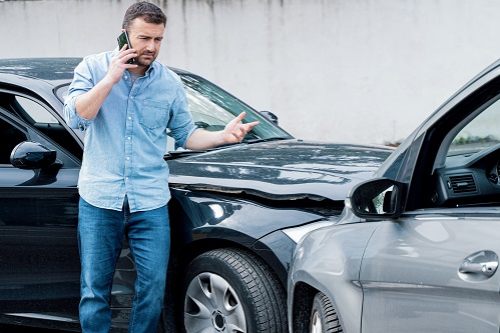- Cheapest non-owner car insurance companies in Ohio
- Best non-owner car insurance in Ohio
- Insurance.com's top choices for non-owner car insurance
- Average cost of non-owner car insurance in Ohio
- Non-owner car insurance in Ohio by age and gender
- Non-owner vs. traditional car insurance
- What does Ohio non-owner car insurance cover?
- The bottom line: Non-owner car insurance in Ohio
- Methodology
- Compare Ohio non-owners car insurance rates with other states
Cheapest non-owner car insurance companies in Ohio
Auto-Owners offers the most affordable non-owner car insurance in Ohio, with rates averaging $36. The second cheapest Ohio non-owner insurer is Grange Insurance. Average rates are $53.
Compare the cheapest non-owner car insurance companies in Ohio below.
| Company | Average annual premium | Average monthly premium |
|---|---|---|
| Auto-Owners | $36 | $3 |
| Grange Insurance | $53 | $4 |
| Erie Insurance | $120 | $10 |
| Cincinnati Insurance | $126 | $11 |
| Westfield Insurance | $148 | $12 |
| Travelers | $258 | $22 |
| GEICO | $361 | $30 |
| Farmers | $439 | $37 |
| Progressive | $499 | $42 |
| USAA | $97 | $8 |
Best non-owner car insurance in Ohio
While Auto-Owners is the top choice, Erie Insurance and Grange Mutual are also great options for non-owner coverage.
To find the best non-owner car insurance companies in Ohio, we looked at several factors, including how many complaints each company receives, financial stability and average rates. We used rate data from Quadrant Information Services as well as third-party ratings from J.D. Power, AM Best and the National Association of Insurance Commissioners (NAIC).
The table below shows a comparison of the best non-owner car insurance companies in Ohio.
| Company | Average annual premium | J.D. Power | NAIC | AM Best | Overall score |
|---|---|---|---|---|---|
| Auto-Owners | $36 | 833 | 0.50 | A++ | 3.98 |
| Erie Insurance | $120 | 844 | 0.61 | A+ | 3.64 |
| Grange Mutual | $53 | 838 | 0.72 | B++ | 3.16 |
| Travelers | $258 | 806 | 0.49 | A++ | 3.14 |
| Westfield Insurance | $148 | 833 | 1.08 | A | 2.73 |
| GEICO | $361 | 831 | 0.91 | A++ | 2.66 |
| Progressive | $499 | 816 | 0.65 | A+ | 2.38 |
| Farmers | $439 | 816 | 0.80 | A | 2.34 |
Insurance.com's top choices for non-owner car insurance
Take a closer look at our top picks for non-owner car insurance in Ohio.
Auto-Owners
Auto-Owners is our top choice for non-owner car insurance in Ohio. Its average annual non-owner car insurance cost is $36. Auto-Owners has an AM Best score of A++ and a low NAIC complaint ratio of 0.5.
Erie Insurance
Another excellent choice for non-owner car insurance in Ohio is Erie Insurance. Average rates are $120 annually. Erie Insurance has an AM Best rating of A+ and an NAIC complaint ratio of 0.61.
Grange Mutual
Our third pick is Grange Mutual. Grange Mutual rates average $53. Its NAIC complaint ratio is 0.72, and it has a rating of B++.
PEOPLE ASK:
Do I need Ohio non-owner car insurance to drive a friend's car?
Probably not, unless you use the car a lot. If you only drive your friend's car occasionally, their insurance usually covers it under something called permissive use-as long as it's less than 12 times a year. Still, it's a good idea to check with your friend's insurance company just to be sure.
Average cost of non-owner car insurance in Ohio
Non-owners car insurance in Ohio costs $214. However, the rates may differ based on factors such as your driving record, age and coverage level.
Non-owner car insurance in Ohio by age and gender
Your age and gender can impact your rates, whether you're shopping for non-owner or standard car insurance in Ohio.
Age plays an important role in calculating car insurance rates. Younger drivers have less experience and are more likely to have accidents, so insurance companies charge higher rates to cover the risk.
Gender is another factor that affects car insurance rates in most states. Men are often considered higher-risk drivers and tend to have more accidents, resulting in higher premiums.
Here are the average Ohio non-owner car insurance rates by age and gender.
| Age group | Female | Male |
|---|---|---|
| Teens (16-19) | $602 | $562 |
| Young Adults (20-24) | $310 | $300 |
| Adults (25-60) | $210 | $214 |
| Seniors (65-75) | $233 | $223 |
Non-owner vs. traditional car insurance
Non-owner car insurance is typically cheaper than standard car insurance since coverage is minimal. Non-owner car insurance only includes liability coverage, while owner car insurance can include a lot more coverage.
For example, non-owner car insurance in Ohio doesn't pay for damages to the car you're driving or any injuries you sustain. Owner car insurance can include collision and comprehensive coverage to pay for vehicle damages.
Insurance companies assume that people without a car drive less often, and because non-owner car insurance works as a backup to the owner's policy, the risk of a claimAn insurance claim is a request you make to your insurance company for coverage after your car is damaged or you have an accident. You can file a claim online, by phone, or in writing. is much lower.
The table below shows a comparison of average yearly rates for non-owner and standard car insurance.
| Non-owners state minimum policy | $214 |
| Traditional state minimum policy | $362 |
| State minimum car insurance limits | 25/50/25 |
What does Ohio non-owner car insurance cover?
A Ohio non-owner car insurance policy only provides the legally required coverage to be on the road. It includes all Ohio minimum car insurance requirements. It doesn't cover any damage to the vehicle itself.
Non-owner car insurance is secondary, which means it will only apply after the car owner's policy limits are exceeded.
The bottom line: Non-owner car insurance in Ohio
Ohio drivers may need non-owner car insurance for various reasons, such as renting or borrowing a car. However, this type of coverage typically only offers liability coverage to pay for property damage or bodily injuries you cause to others. Coverage does not extend to you or the vehicle you're driving.
Non-owners car insurance averages $214 in Ohio, and Auto-Owners offers the lowest rates. In our analysis, Auto-Owners was the top pick overall. Remember that your age, gender, and driving record significantly impact insurance rates.
Take the time to compare options to find the best non-owner car insurance in Ohio. Use the tool above to easily compare non-owner insurance providers near you.
Methodology
Insurance.com analyzed non-owner car insurance companies in 2023 to find the cheapest and the best overall based on rates and third-party ratings.
Non-owner car insurance rates were fielded by Quadrant Data Services for a sample policy based on a 40-year-old driver with a clean record and good credit for a state minimum liability policy. These rates were one of the factors used to rank the best companies.
For additional data points in the ranking, customer complaints ratios were pulled from the National Association of Insurance Commissioners (NAIC) complaints database, where a score of 1.00 is considered the baseline and anything below is a low complaint volume while anything above is considered a high volume. Overall customer satisfaction ratings were drawn from J.D. Power's U.S. Auto Insurance Study, where companies are scored out of 1,000. Finally, AM Best financial ratings were used to indicate financial stability, where the best possible score is A++.
Compare Ohio non-owners car insurance rates with other states
 You might also be interested in
You might also be interested in- Ohio landlord insurance for 2025: What you need to know
- Ohio car insurance laws and requirements: What is changing in 2025
- Ohio OVI and insurance: How much does an OVI raise your insurance?
- Speeding ticket calculator in Ohio
- SR-22 insurance in Ohio
- Ohio gap insurance: Everything you need to know
- Low-income car insurance in Ohio: What you need to know
- Ohio car insurance guide
- Cheapest car insurance for high-risk drivers in Ohio
- Cheapest home and auto insurance bundle in Ohio





